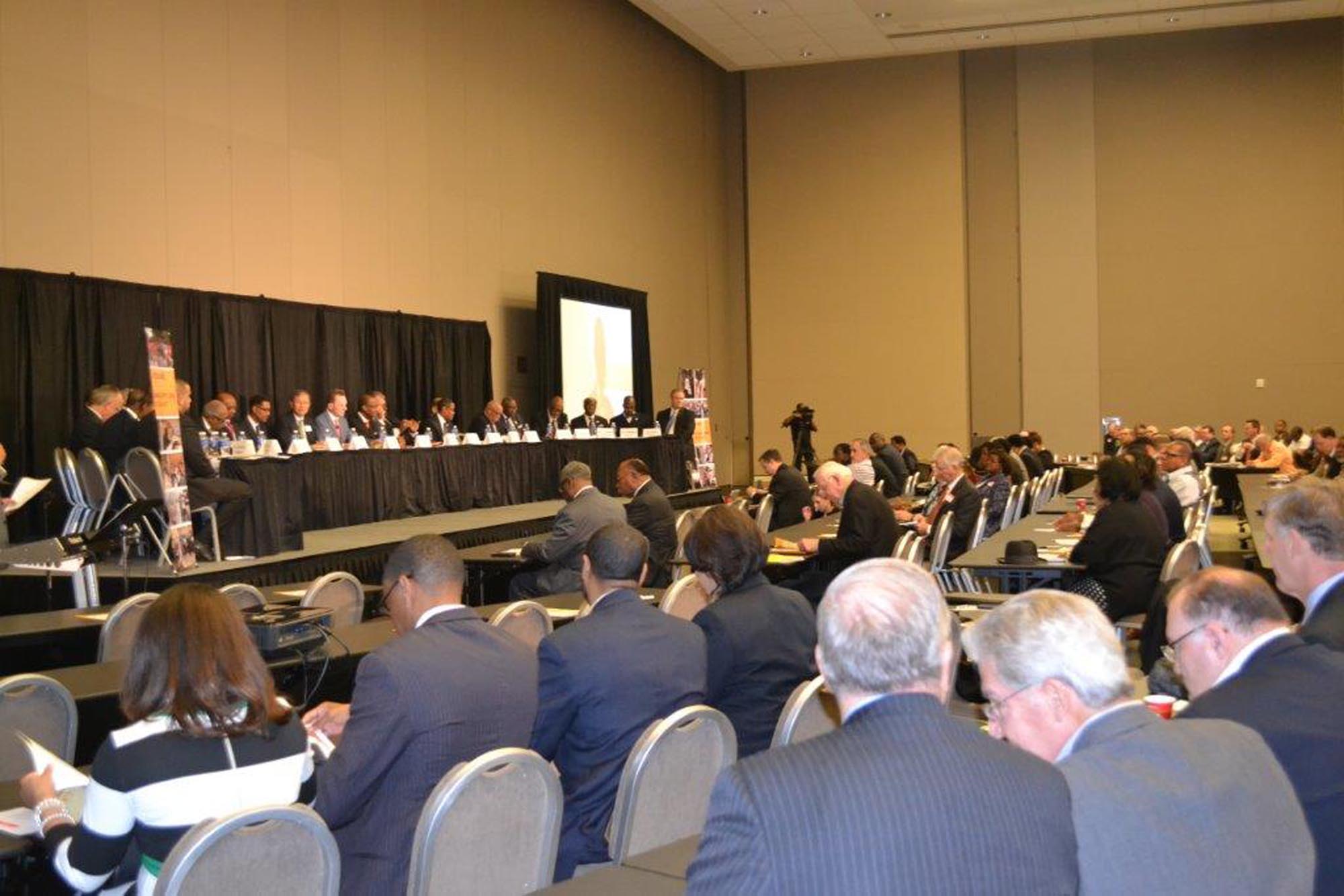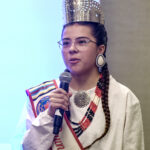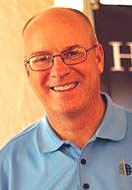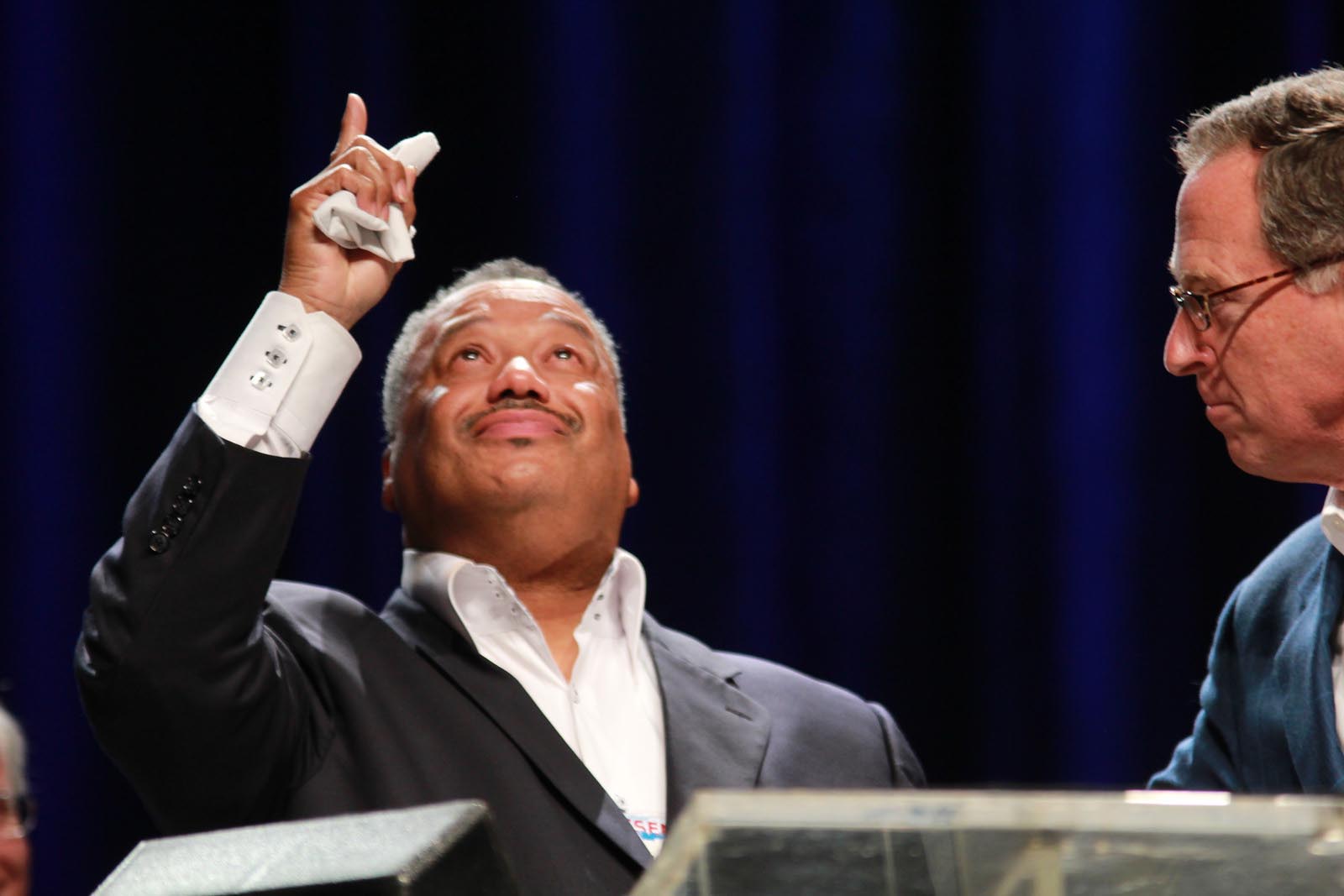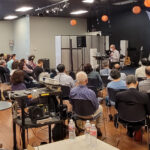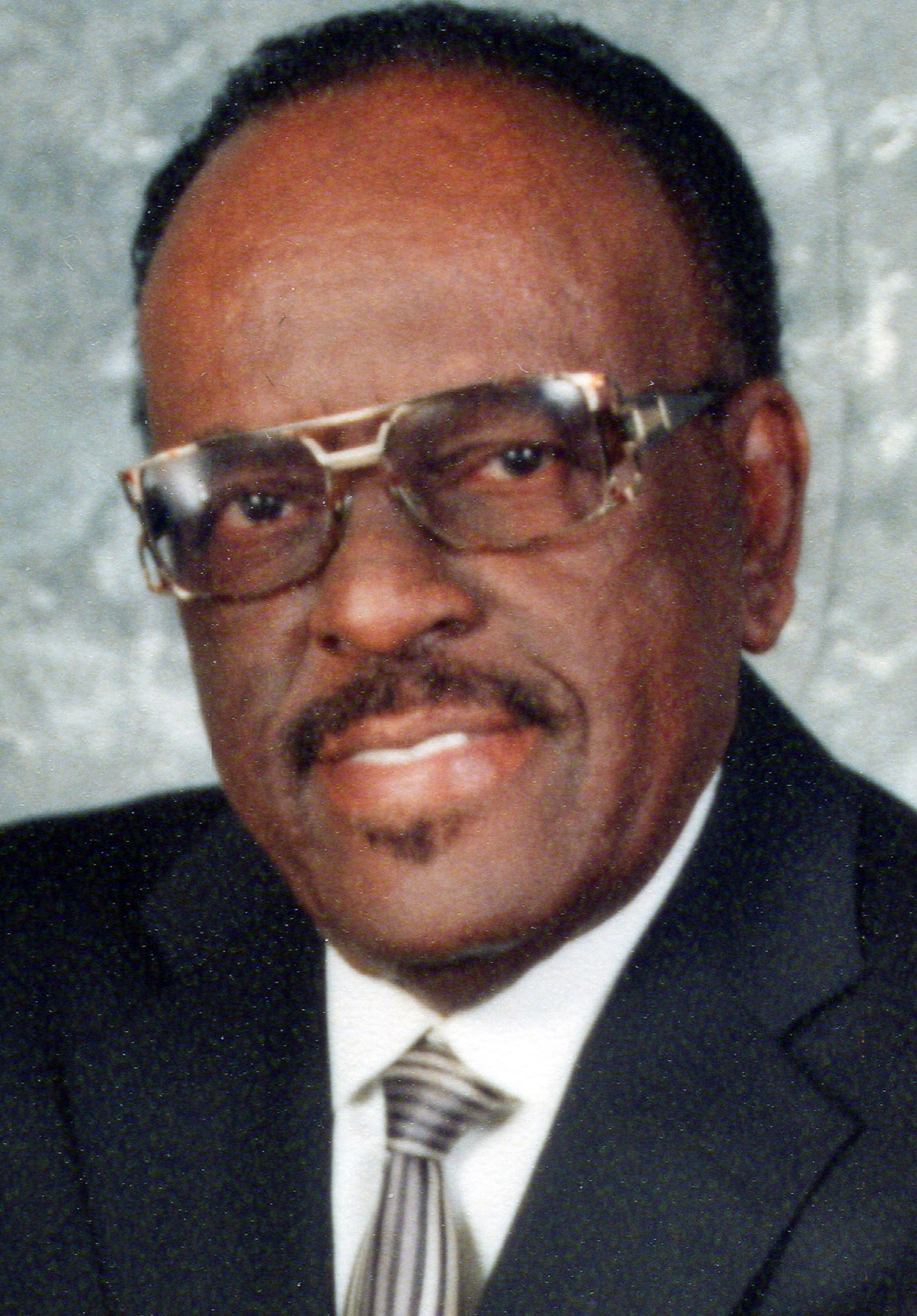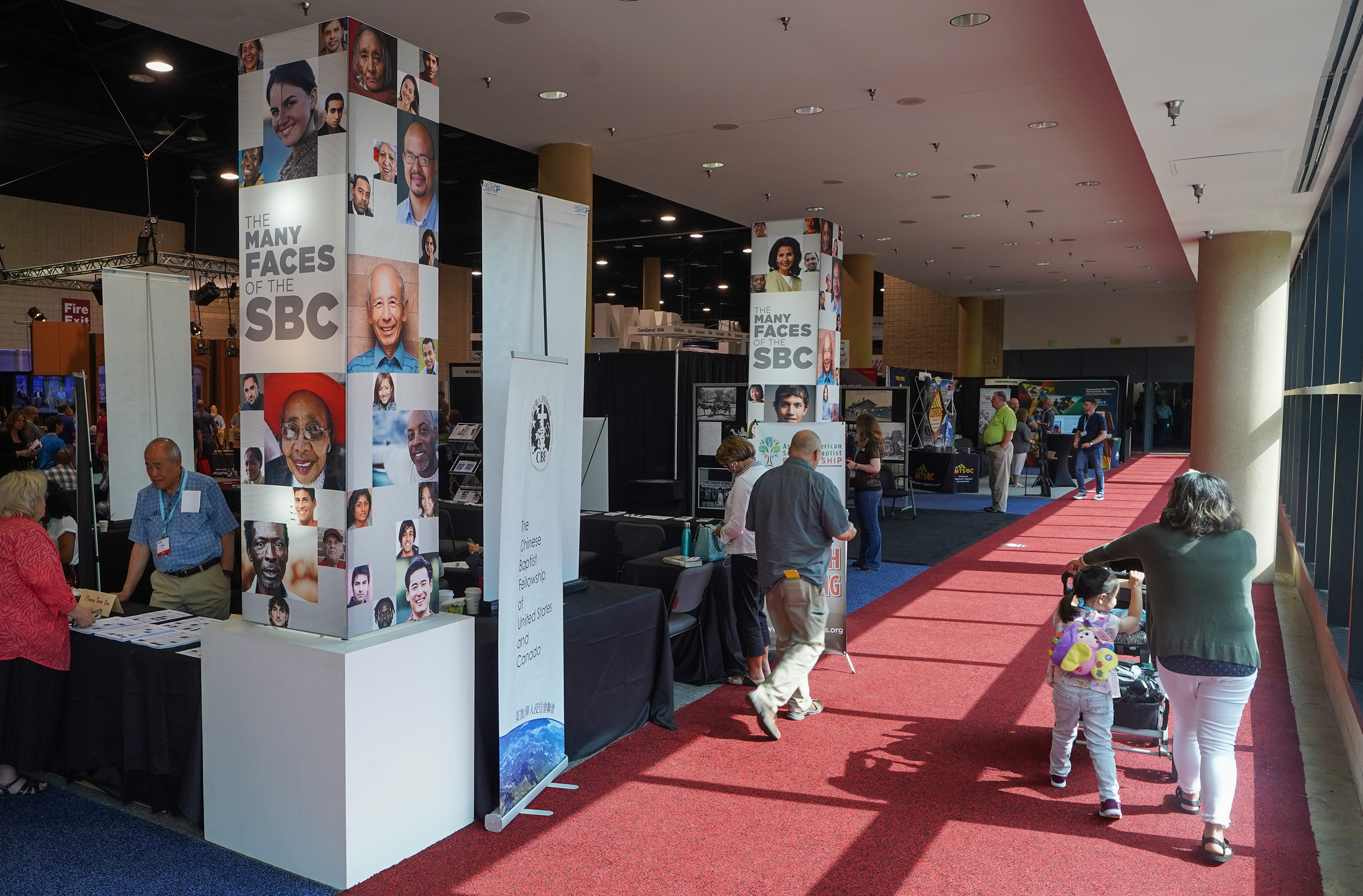
JACKSON, Miss. (BP) — Southern Baptist Convention President Ronnie Floyd and National Baptist Convention President Jerry Young have agreed to appoint a joint study group and perhaps a steering committee to continue dialogue on racial healing among Christians and ultimately across the nation.
The two leaders of the largest Baptist groups in the U.S. announced their decision at the end of the panel discussion hosted by Mission Mississippi Nov. 4 from 8:30–11:00 a.m. at the Jackson Convention Center.
Floyd presented the idea to Young as the panel discussion was segueing into a question and answer segment with the audience, recommending that both men appoint perhaps three members from each Baptist group to continue dialogue on a conference call and determine three or four steps to implement to achieve racial reconciliation.
“Not to minimize anything, but we want to be able to have dreams that we can conquer, and we have to crawl before we walk, and we have to remember we’re nothing more than a bunch of preachers trying to proclaim the Gospel to a world that’s desperately hurting,” Floyd said to Young. “Would you be cool with that?”
“I would be cool with that,” Young responded. “I think it’s absolutely on time. I wrote down why don’t we establish a steering committee for that very same reason. … I think progress is not about speed; it’s about direction.”
Floyd acknowledged the possibility of a steering committee.
“He and I will work together to just really get to appointing two or three of you guys from each one of our conventions and try to work through this,” Floyd said, “and perhaps one of those [takeaway] things can be your idea about a steering committee or some kind of functional task force, as was suggested before, between our conventions.”
Floyd moderated the preceding panel discussion, “A Conversation on Racial Unity in America,” which included 20 additional pastors with equal Southern Baptist and National Baptist representation. He charged the group to not rehash the past — acknowledging that the past cannot be forgotten — but encouraged pastors to focus on the church’s role in leading the way to racial unity.
“I want to remind all of us here today, this meeting is somewhat historic,” Floyd said, “not simply because we have people from all ethnicities talking about this issue, but these are called men of God, leaders of local churches and ministries, who’ve come together in the common name of Christ, and we are representing the church of the Lord Jesus Christ. And that is a fresh wind to this conversation in the United States and far, far, far overdue.”
Floyd called on specific pastors to comment on topics pertinent to the conversation, opened the panel for discussion and ended each topical discussion with prayer from a panel member.
The reality of pain
Thomas Morris, senior pastor of Greater Hinds Street Missionary Baptist Church in Greenville, Miss., an attorney in private practice in Cleveland, Miss., and parliamentarian of the National Baptist Convention, led the discussion on the pain of the past, with an emphasis on the hope for the future.
“Historically there is also a tension between the place of comfort and a place of pain. I would argue with [author] William Faulkner who said the past isn’t dead and buried. In fact, it isn’t even past, for there are still scars of racial injustices that are ever before us,” Morris said. “Even the disparities are multitudinous. Inequities are still passed from one generation to the next. The realities of our present will always seek to undermine the arrival of hope.”
He pointed to the killing of unarmed black men by police; underfunding of schools with adequate funding of overcrowded jails; church burnings and massacres, and racial profiling that he said occurs in many facets. To reach a hopeful future, Morris said, Christians must realize black anger is counterproductive but understood and that white resentment detracts attention from the real culprit. He also noted working together is essential for healing of old wounds and the Band-Aids of the past are insufficient.
“Our respective communities must embrace the pain of the past without becoming victims of the past,” Morris said, pointing to the hope found in Jesus Christ. “Hope says in spite of the pain, there is a divine synergism that says all things work together for the good. Hope invites us to a larger view, that there is purpose in our pain, and that pain is a pruning process that propels us to a higher purpose.”
Southern Baptist pastor Marshall Blalock leads First Baptist Church in Charleston, S.C., home to Emanuel African Methodist Episcopal Church, where nine black worshippers were slaughtered by white teen Dylan Roof during an evening Bible study in June.
Blalock said that while it is difficult for whites to completely understand the pain of racial hatred blacks feel in the U.S., it is also true that whites are diminished by racism, even if they don’t realize that it touches their own lives. The massacre at Emanuel AME church helped whites understand the pain of racism for the first time, Blalock said, and the speed with which families of the victims forgave the shooter was transformational.
“For the first time white people felt the pain in such a powerful way that the message of grace by laypeople at Emanuel Church transformed the city,” he said. “And so I stand before you today to say the pain is real, and for the first time, the white community felt it.”
America’s spiritual need
K. Marshall Williams, president of the Southern Baptist Convention African American Fellowship and pastor of Nazarene Baptist Church in Philadelphia, Pa., led the discussion on America’s spiritual need. All Christians have been called to a ministry of reconciliation that can only be achieved when we are in right fellowship with God, Williams said, pointing out that racial disunity is a problem born in “sin,” not “skin.”
“Inextricably linked up in my ability to be right with you, I’ve got to be right with God,” Williams said. “That’s what our charge is, to help men, women, boys and girls be right with God so they have the capacity to be right with each other.”
When culture and politics are elevated over biblical authenticity, Williams said, Christians lose power to proclaim God’s Word.
“I’m calling our nation to a Greatest Commandment revival,” Williams said. “Without exact obedience to the Greatest Commandment, we don’t have a mission. It’s the pot calling the kettle black, or one drunk telling another one you ought to get sober. Or like James Brown said back in my B.C. (before Christ) days, ‘I’m talking loud, but saying nothing.'”
Williams referenced Jesus’ greatest commandments found in Matthew 22:37–39; I John 4:7-8, which calls Christians to love one another, and I John 3:14, which denotes brotherly love as a sign of salvation.
Realizing Gospel unity
Jesse Bottoms Jr., pastor of Beulah Baptist Church in Poughkeepsie, N.Y., and vice president at large of the Congress of Christian Education of the National Baptist Convention, said racism remains the greatest barrier to evangelism.
Bottoms suggested three prerequisites to racial unity. Namely, Christians must ask God to take the church “upstairs” so that members can be “on one accord” as the disciples were in Acts 1:13–14; Christians must ask God to show preachers their downsides, he said, referencing the book of Malachi, so that pastors live Godly lives; and he would ask God to meet Christians where they are, as the father met the prodigal son when the son was approaching home, yet still far away, as told in Luke 15:20.
“God, take the church upstairs,” Bottoms prayed, “show us our downside, and talk to us outside.”
What is the answer?
Floyd solicited answers from all members of the panel. Among suggestions offered:
— Ed Litton, a Southern Baptist and pastor of Redemption Church in Mobile, Ala., said some wounds heal slowly and require tension, work and daily attention to heal. “But I am convinced that God can do what needs to be done in the healing process in a moment, and He will do it in a way that brings Him glory.”
— Gene Henderson, a Southern Baptist and former pastor of First Baptist Church in Brandon, Miss., said pastors must be very intentional in reaching across racial lines to achieve unity.
— Ricky Turner, senior pastor of Oak Ridge Missionary Baptist Church in Kansas City, Kan., and National Baptist Convention treasurer, said judgment must begin at the House of God, and called on pastors to humble themselves, follow their calling with “grit, gall and faith,” and exhort Christians and sinners to repent. “The key to bias is love,” he said, “because love covers a multitude of sin.”
Other suggestions included inviting pastors to pray in one another’s pulpits (pulpit swaps); using joint resources to rid inequities in the justice system, the economy and the law; employing people of different ethnic groups in church leadership; trusting one another across ethnic and cultural divides; dismissing political correctness; and sharing the blame of racism and the responsibility of reconciliation across racial lines.
See related story link below this article for a full list of panel participants. Greg Belser, a Southern Baptist and pastor of Morrison Heights Baptist Church in Jackson, Miss., replaced Memphis pastor Steve Gaines, who was ill.
